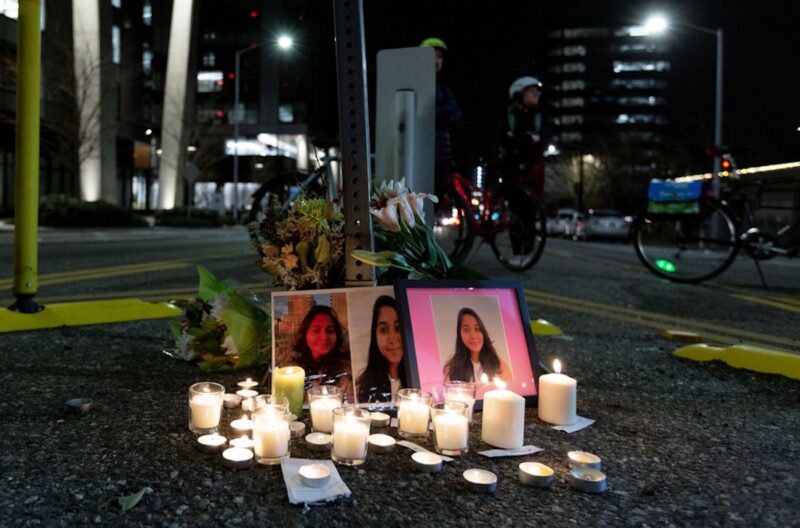Share this Post
Two Seattle Police officers are currently under investigation after a leaked recording captured them making derogatory comments while discussing a woman of color who had tragically died after being struck by a police cruiser. The officers callously remarked that the deceased woman had “limited value.” Regrettably, incidents like these only serve to fuel claims that all police officers are not to be trusted (ACAB).
In January, Officer Daniel Auderer was responding to a call in South Lake Union, where his colleague, Officer Kevin Dave, had struck 23-year-old graduate student Jaahnavi Kandula while driving at a high speed of 74 mph to attend an overdose report. The collision flung Kandula over 100 feet, leading to her tragic death later that night.
Auderer was tasked with determining whether Officer Dave had been under the influence at the time of the accident. After confirming that Officer Dave was sober, Auderer made a call to the president of the Seattle Police Officer’s Guild, inadvertently leaving his body camera activated. During this conversation, a series of offensive remarks about the accident were captured on audio.
Auderer voluntarily reported himself to the Office of Police Accountability (OPA) after realizing the extent of his comments.
According to the complaint, Auderer responded in a manner aimed at ridiculing city lawyers, saying something along the lines of, “She’s 26 years old. What value is there? Who cares?” He clarified that this comment was intended as a mockery of lawyers and their tendency to engage in contentious negotiations to minimize compensation. Auderer expressed his frustration with the way such incidents are litigated and the insensitivity displayed during negotiations following tragic events.
In another document submitted to the OPA, Auderer’s comment was elaborated upon: “Yeah, just write a check… $11,000. She was 26 anyways. She had limited value.” This statement was reportedly an extension of his satire aimed at lawyers and a city’s attempt to pay less than warranted.
A colleague overheard Auderer’s discussion about the body camera recording, which led to the ongoing investigation by the watchdog agency. The status of the probe concerning the president of the Seattle Police Officer’s Guild, who shared a laugh with Officer Auderer, remains unclear.
This incident brings to mind another instance in Seattle where a police officer’s body camera revealed offensive decorations inside a precinct station. The East Precinct of the Seattle Police Department was adorned with Trump flags and a mock tombstone dedicated to a Black man fatally shot by officers. Such revelations prompt questions about how some officers truly perceive their role and the communities they are entrusted to serve.
Without the disclosure of these body camera recordings, the public may never have gained insight into these disturbing incidents.
Whenever innocent lives are tragically lost, it is profoundly disheartening. However, this specific incident fills us with anger and frustration, as we have been closely acquainted with the numerous challenges that women in India confront. It is deeply distressing and outrageously unjust to realize that Jaahnavi achieved something that only a small fraction of Indian girls have the opportunity to do – receive an education abroad, only to have her life abruptly ended and devalued.
The question arises: When will the world cease to overlook the worth of girls and women, particularly those in India? What truly lacks value are the patriarchal and racist systems that perpetuate such harmful ideologies, which, based on both factual evidence and statistics, hinder progress for us all.
Published by Hear Her Stories

